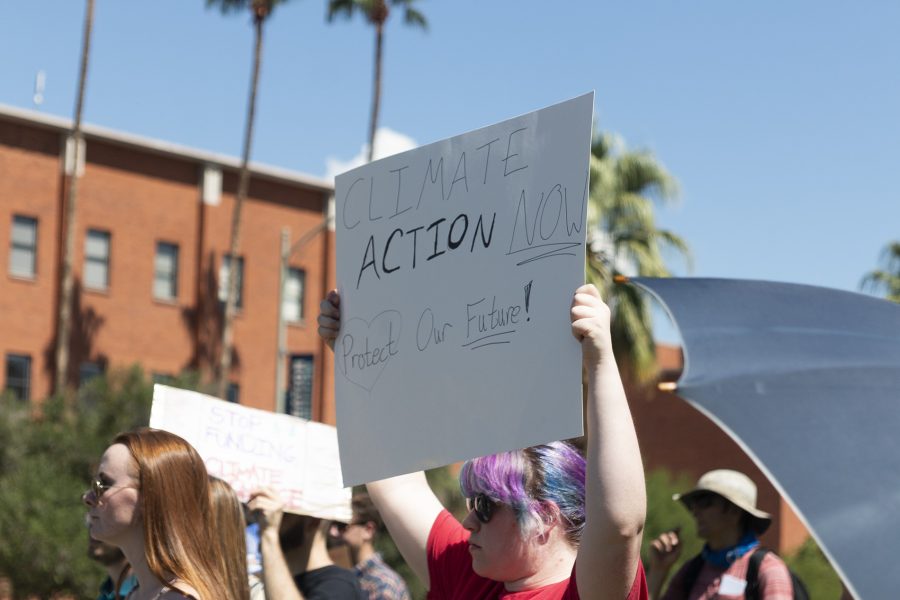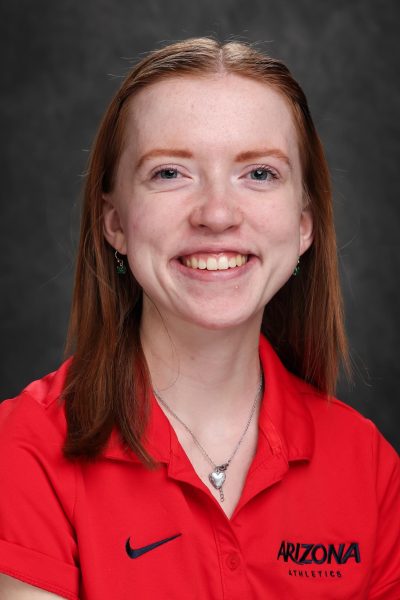Sustainability movements take a variety of forms at the University of Arizona, with a multitude of student-led initiatives and organizations focused on calling attention to issues of climate change, climate anxiety, lack of resource accessibility and more.
The Campus Sustainability Fund at the UA is one way in which these initiatives can gain traction and reach a larger audience.
CSF is a program within the UA Office of Sustainability that “was established to provide funding support for large- and small-scale sustainability projects that build a more sustainable, equitable, and resilient future for the University of Arizona and the Tucson communities,” according to the fund’s website.
The Fund was created in 2021 as a successor to the Green Climate Fund. It offers both mini and annual grants to different projects; mini grants “range from $250 to $5,000 and are smaller-scale projects that must be completed in either a semester or a year. Annual Grants range from $5,000 to $100,000 and are larger scale, with time frames of up to 3 years allowed for completion of the project,” according to Office of Sustainability Outreach and Connections Specialist Madison Gerdes.
The CSF has funded a variety of student-led projects in recent years, including Project Rethink Climate, Native Plant Gardens, the Campus Pantry Bulk Foods Program and more, listed on the Office of Sustainability’s website.
Gerdes mentioned that the fund has started to place a special emphasis on supporting student-led and socially sustainable projects.
“While all university staff, faculty, and students are allowed to apply for funding, we believe this is a really unique opportunity for students specifically to gain project management experience and spearhead projects up to $100,000, which I believe is an opportunity you really can’t get anywhere else as a student,” Gerdes said. “We especially feel this way because we are funded by student fee money, and we want to see it going back to the students.”
One of these student-led projects that the fund supported recently is Project Rethink Climate, a program started by Hunter Gibbs, an environmental science major, that aims to “demonstrate the importance of sustainability and the need to continue fighting for our environment by facilitating a field trip open to all students to Biosphere 2,” according to Gibbs.
Gibbs was inspired by his own visit to the biosphere, and wanted to show the facility to students without the barriers of cost and transportation; the trip is completely free to the students who sign up and are chosen.
A primary goal of Gibbs’s project, and all of the projects CSF funds, is to reach out to students who might not necessarily be involved in sustainability circles.
“That’s something that [CSF] commented on that they were really impressed with with this project, just the breadth of this project and getting out into the interdisciplinary realm of the cultural resource centers and the building connections course,” Gibbs said. “That was really a huge focus of this project, getting everyone a seat at the table when it comes to discussing issues of sustainability.”
On a larger scale, the CSF recently offered $86,000 to the “Growing Equity Focused Environmental Leaders and Educators” grant, led by the Bio/Diversity Project. This funding will go towards helping the project transition all of their unpaid internships to paid, increasing the accessibility of the internship opportunity, according to Gerdes.
Following the announcement of the UA’s Sustainability & Climate Action Plan, there has been a greater push on campus toward more student involvement in the climate conversation, and the CSF reflects one way in which student voices are being heard on topics of environmentalism and sustainability.
The fund, in line with its emphasis on student-led projects, also includes a student committee which is composed of six students that help to guide the funding process and incorporate student input.
Gerdes is one of the students on the committee, and has loved seeing the tangible impacts that her work, and the work of the CSF and the projects it funds, have on the UA campus and the greater Tucson community.
“Being able to see those changes as I walk around campus, whether that be in the form of a series of native plant gardens we’ve funded, the bike repair stations, Earth Day events and symposiums, or the new Campus Bike Shop, and more, is inspiring as a student,” Gerdes said.
Other projects funded by the CSF include the “Sustainable Citrus Plus” project, which used the $5000 funding it was awarded by the CSF to “expand an aquaponics system at one of the greenhouses at the Controlled Environment and Agriculture Center to include citrus and other fruit trees” and then, once the fruit from these trees is mature, it is donated to Campus Pantry, according to Gerdes.
Applications for projects have reopened for the fall, and Gerdes encouraged anyone who is interested to apply.
“If people have the means, I would strongly encourage them to apply if they have a sustainable project idea that needs funding! It can have a huge impact on so many people’s lives and it’s an overall amazing experience,” Gerdes said.










